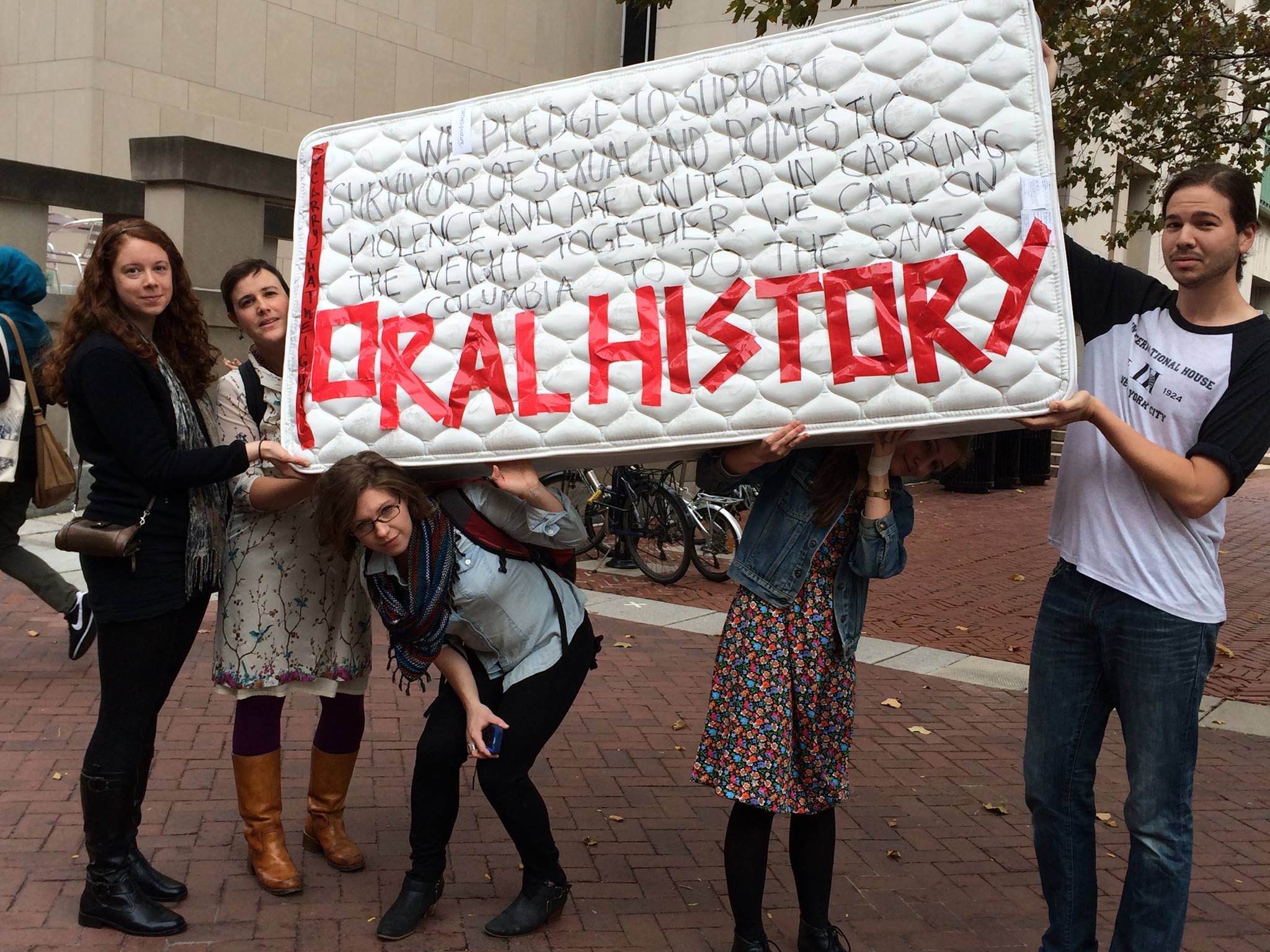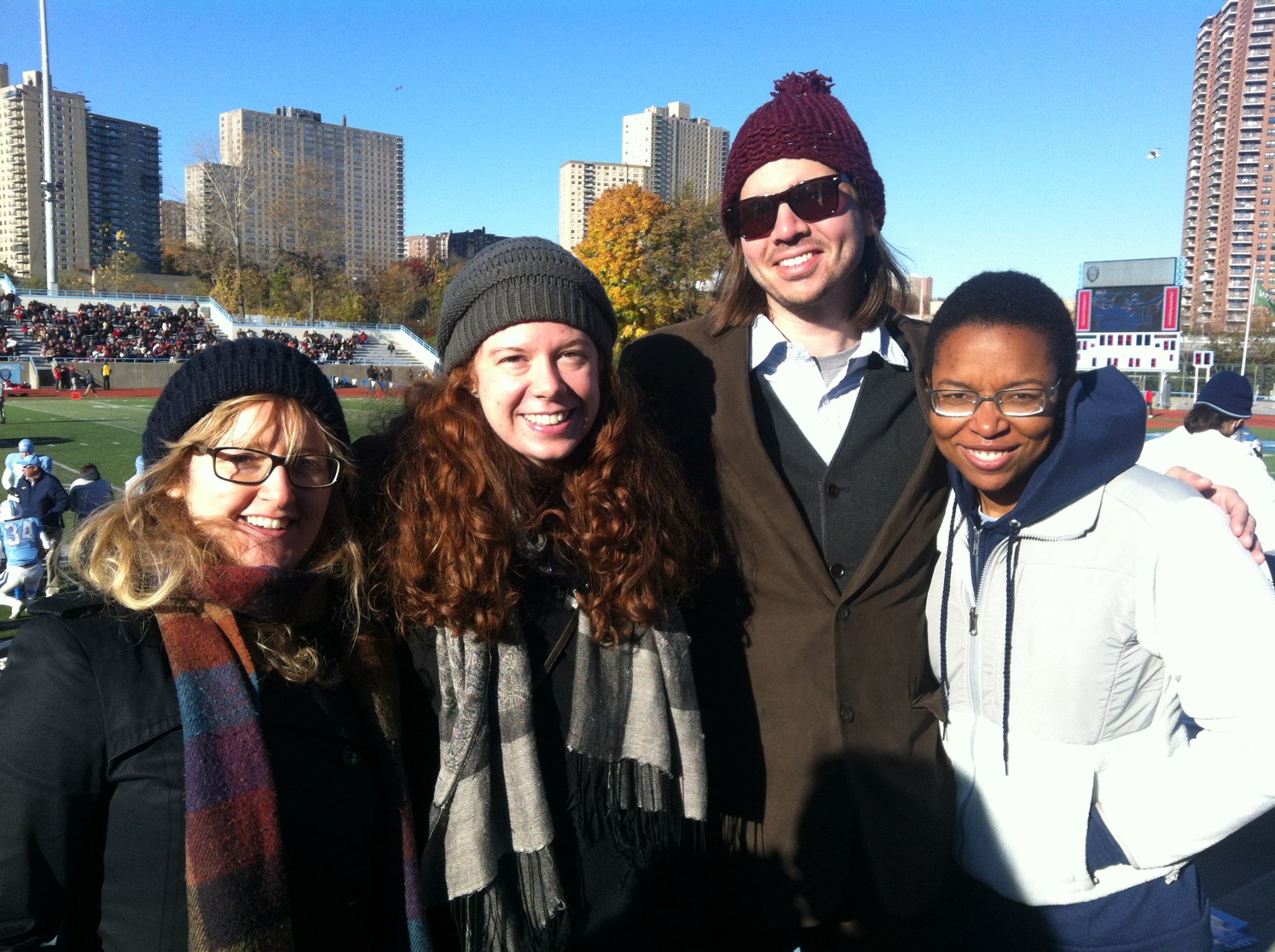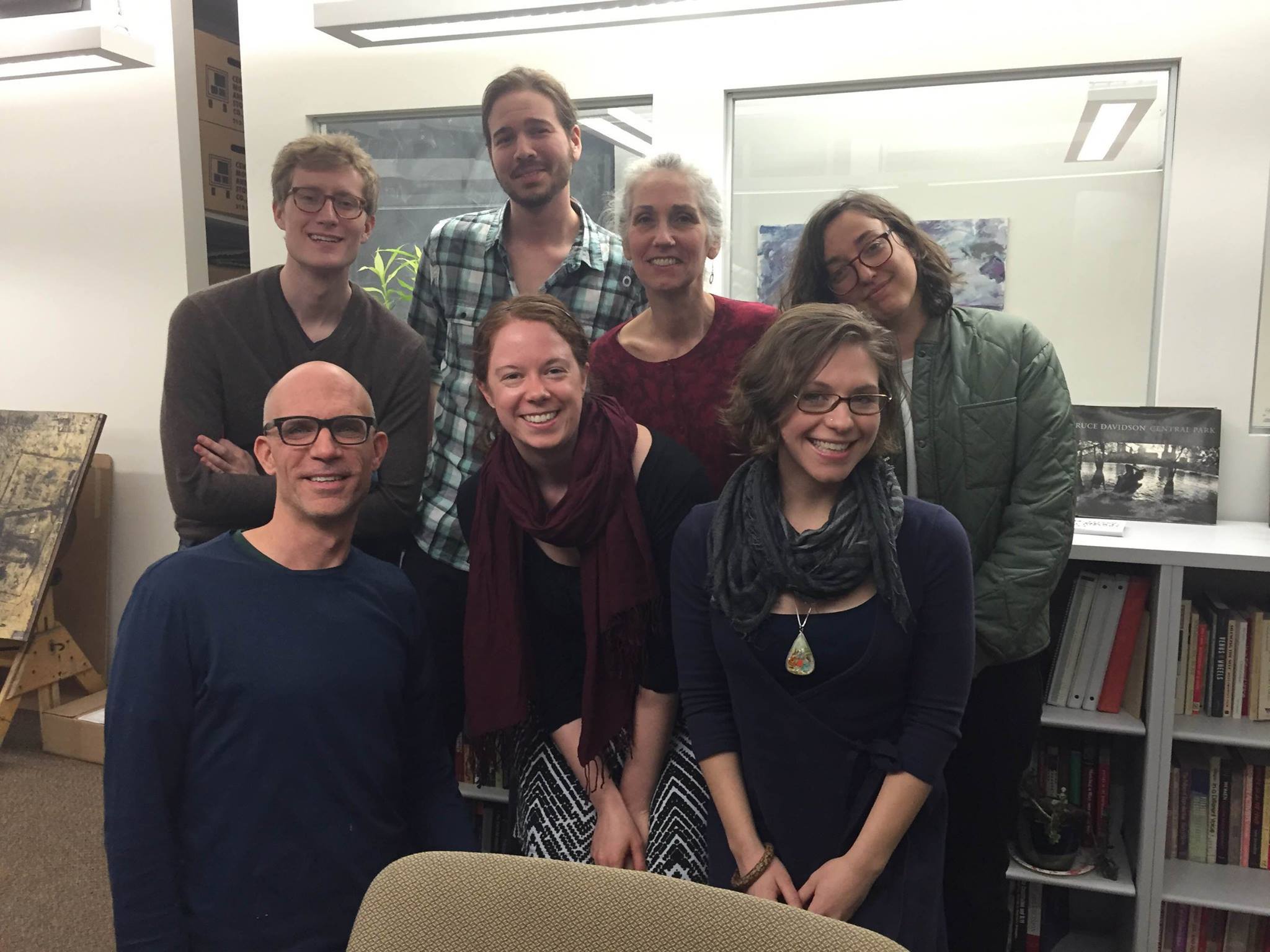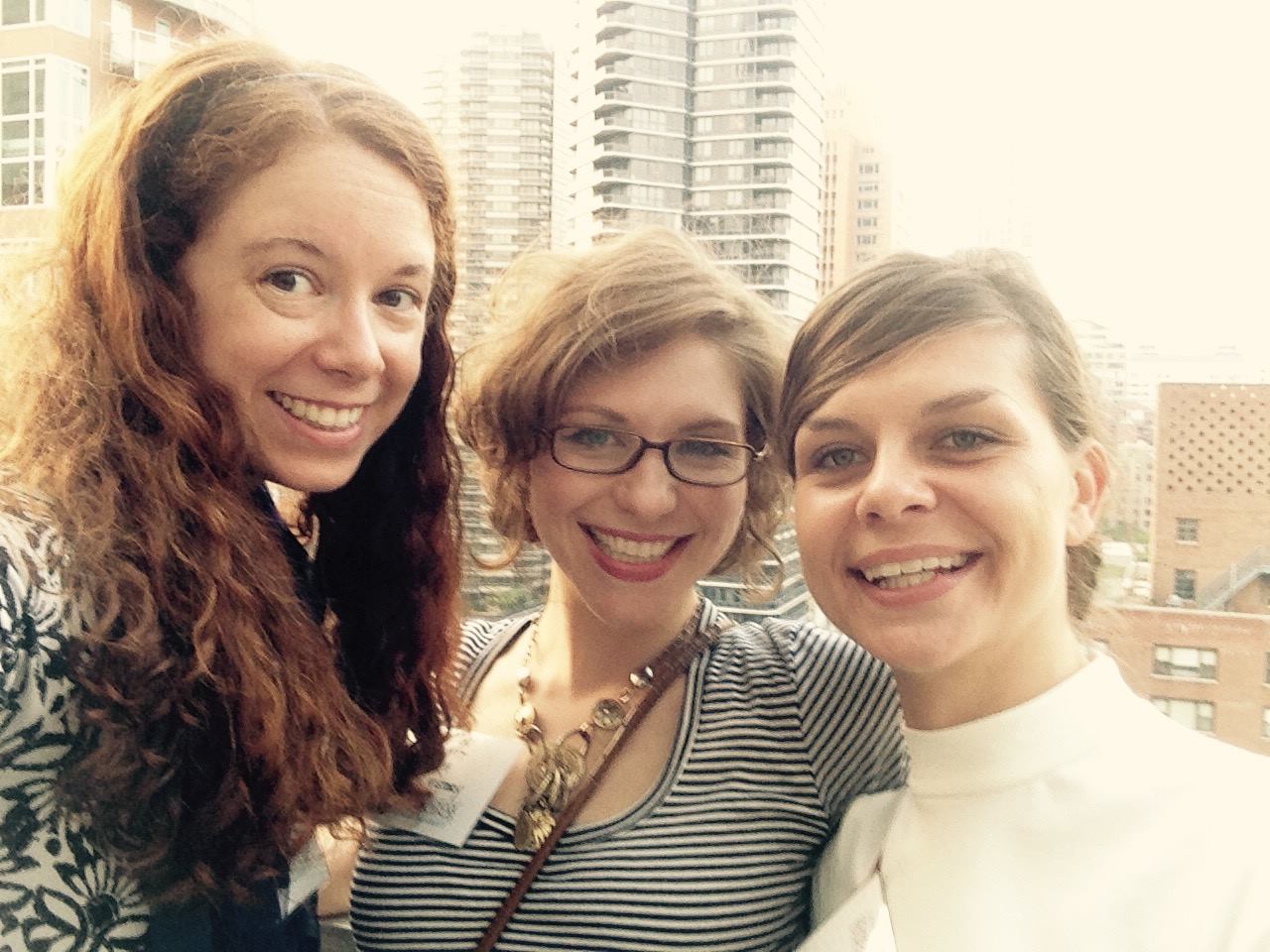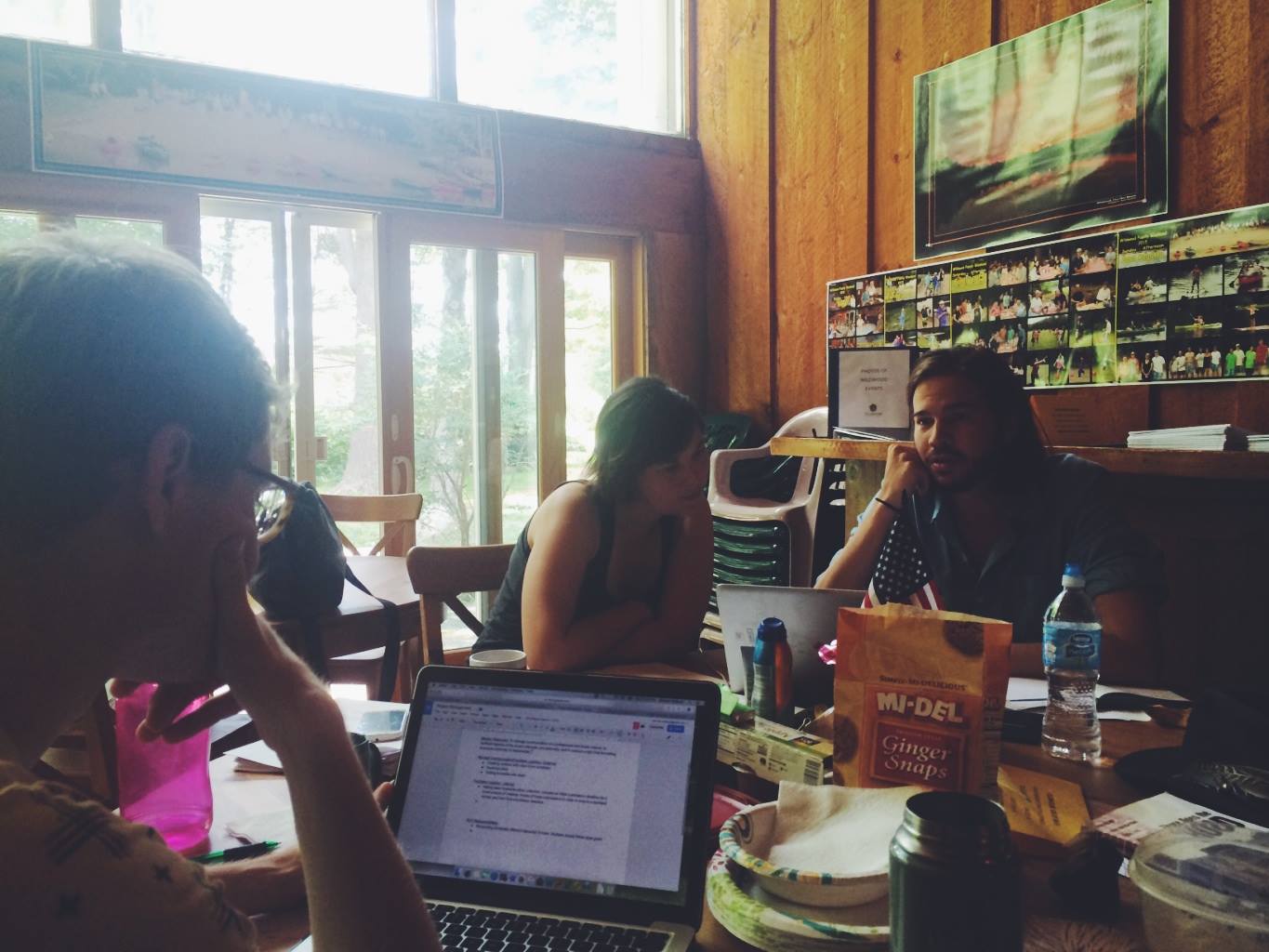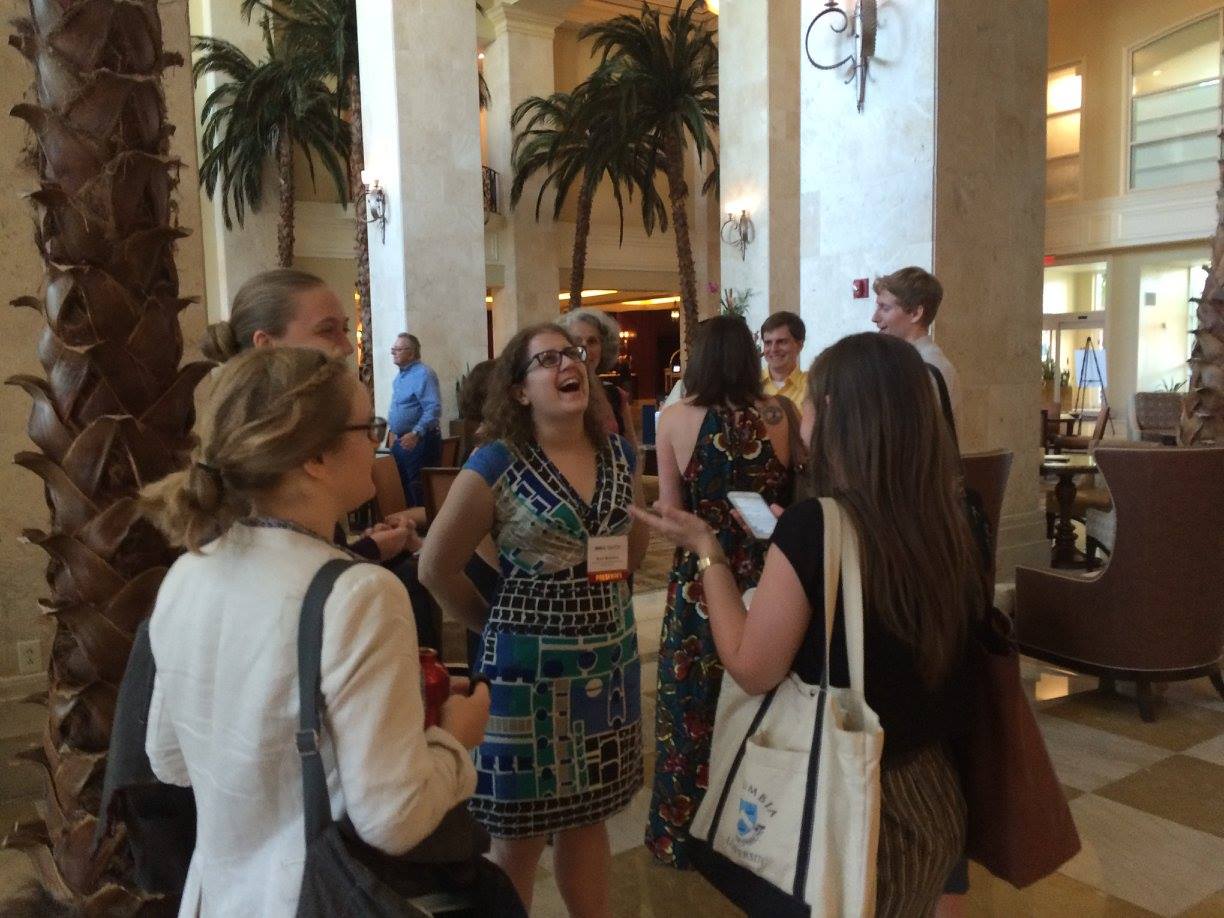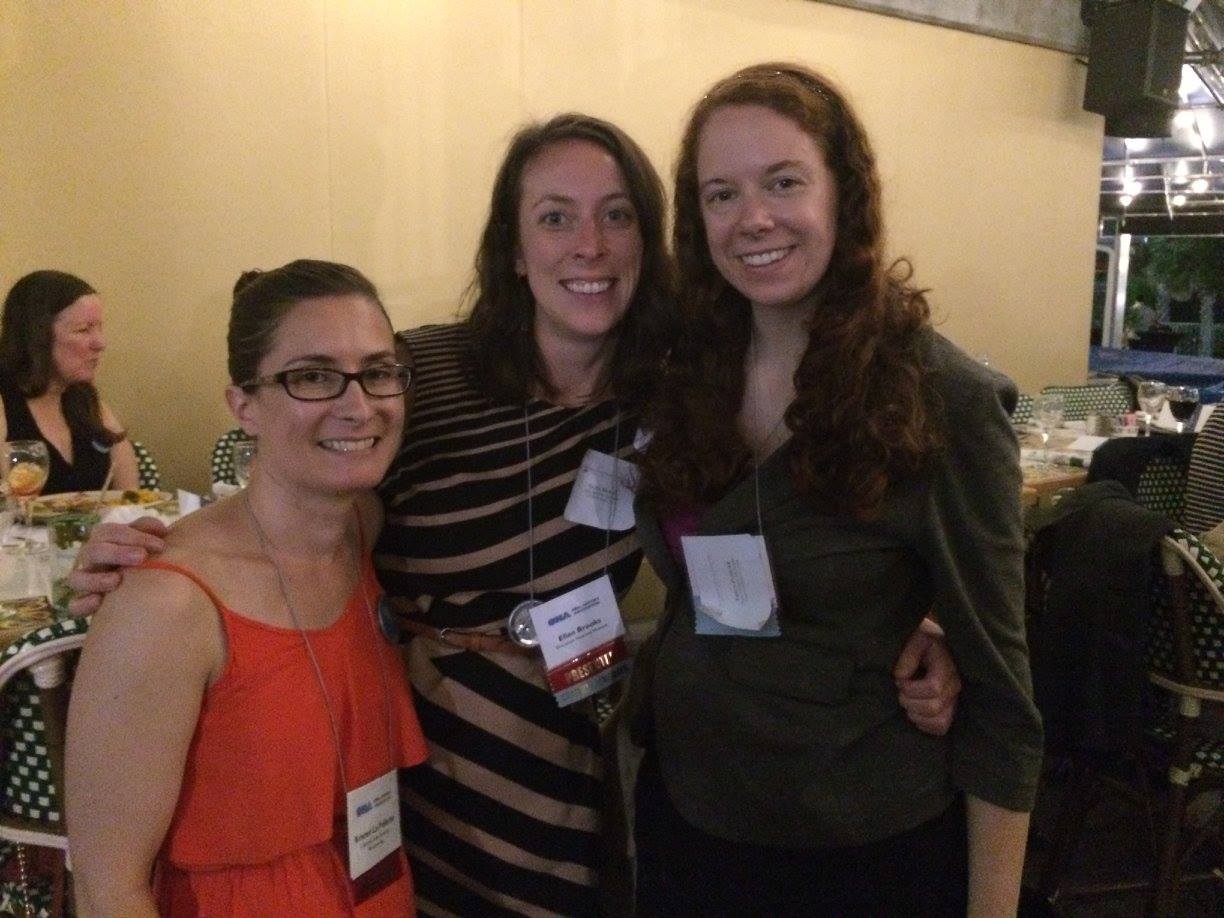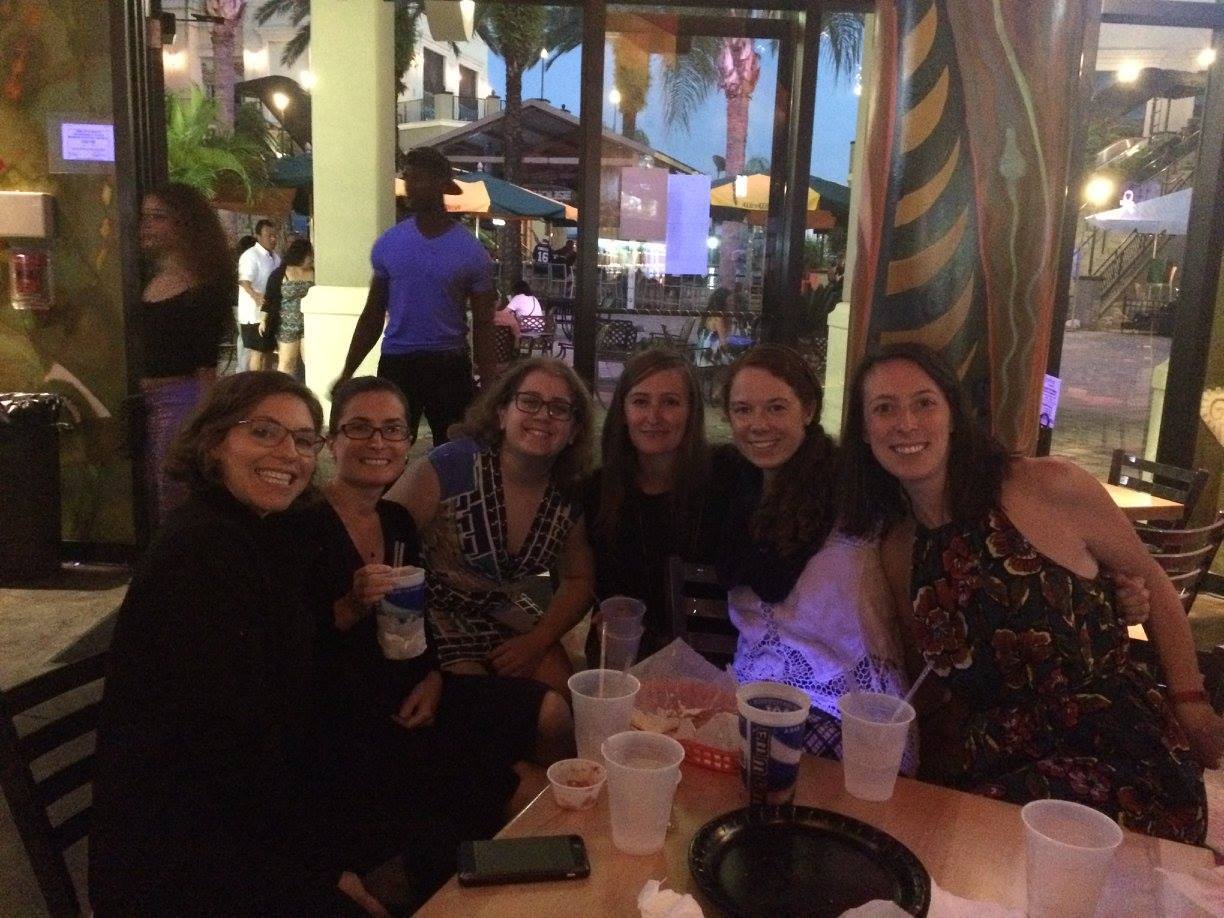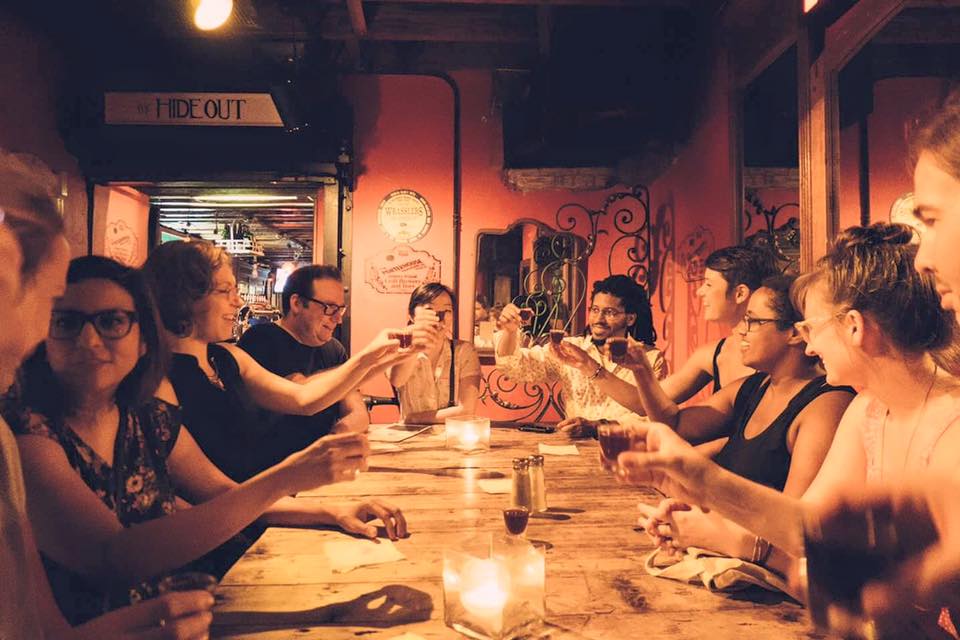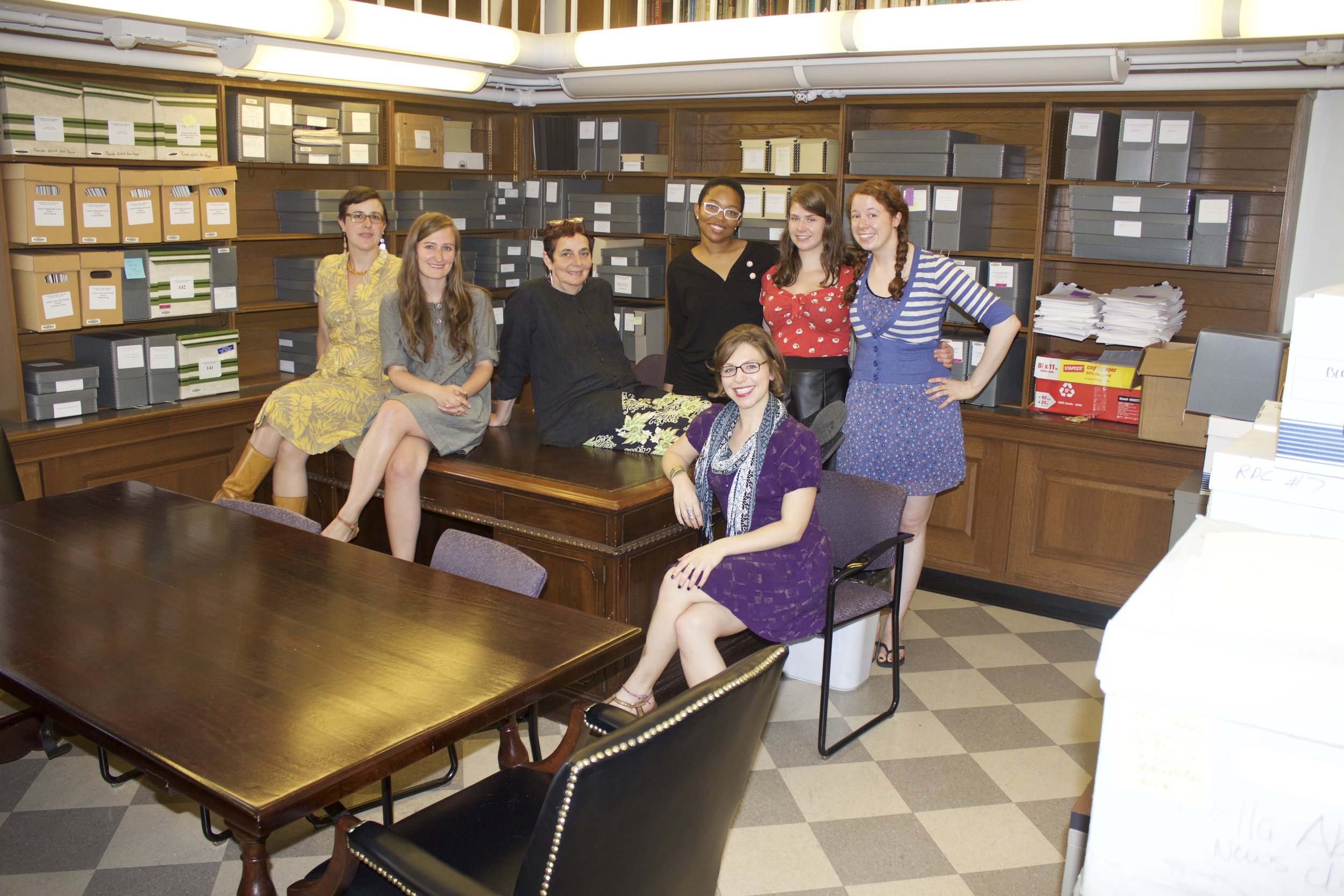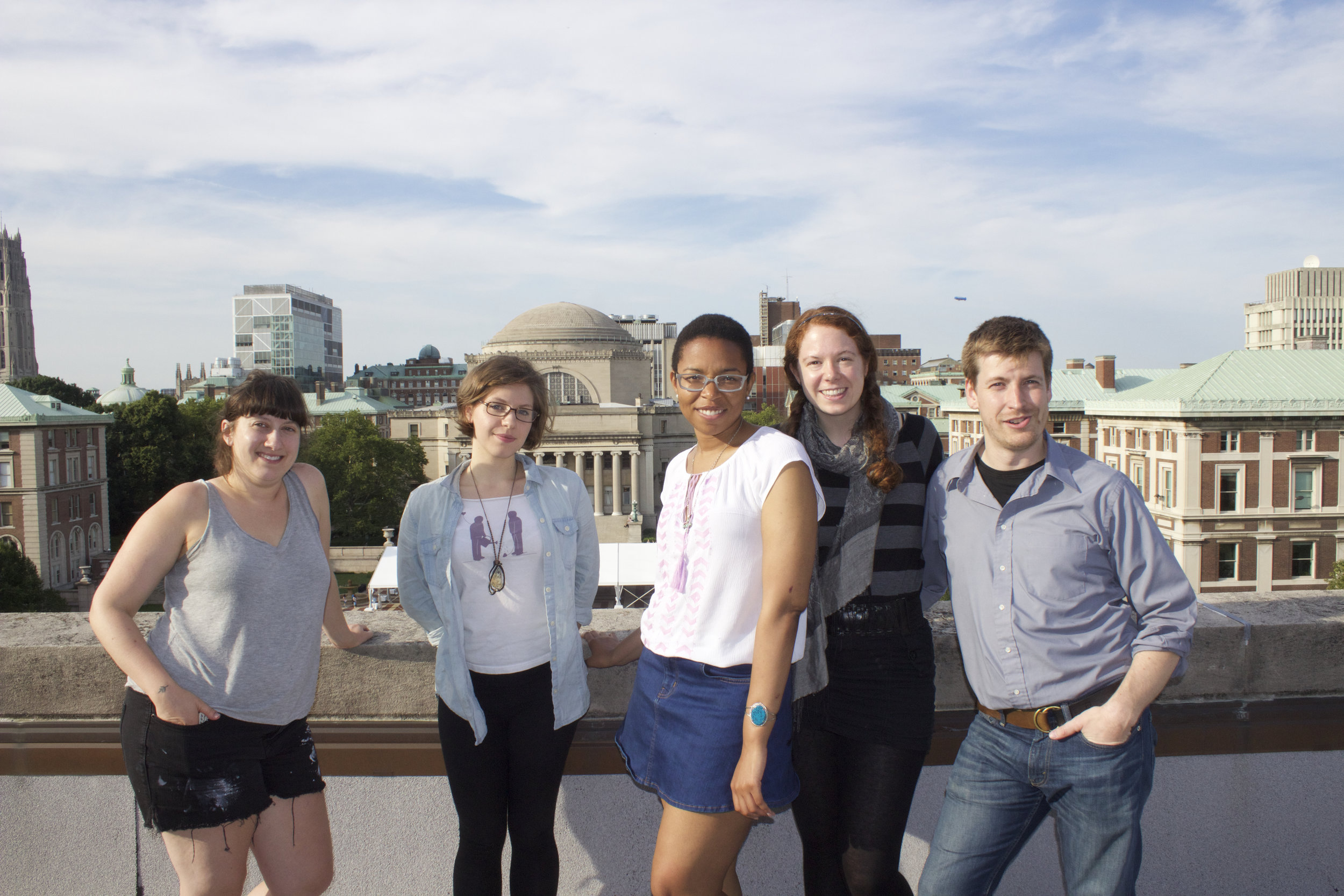Erica Fugger (2012) is Project Coordinator to OHMA and Founding President of the Columbia Oral History Alumni Association (COHAA). In this article, she offers reflection on the establishment of COHAA through inter-cohort dialogue during her time as a young alum and administrator to the program.
801 Butler Library overlooks the grand promenade of Columbia University’s Morningside Campus. I was once told that the small windows to the north side previously opened as French doors, leading out to a balcony that spans the entirety of the library’s columned façade. Sunset falls heavily on campus, casting an orange or blue tint to the brick and stone.
Turning behind me, nearly in tears, I survey the empty room once so abuzz with young energy. But the closing of one opportunity opens another, after all.
This is one version of the founding of the Columbia Oral History Alumni Association.
It was fall of 2013. In reverse culture shock, I returned to New York from a summer of thesis interviews and working meditation at a Buddhist monastery in the southwest of France. With each step outside, I dripped sweat in the early September humidity, traversing around undergrads on my way back to campus. The new academic year was underway. And the Columbia Center for Oral History was in transition.
One year prior, OHMA had relocated from its original host through the Institute for Social and Economic Research and Policy (ISERP) to its present home in the Interdisciplinary Center for Innovative Theory and Empirics (INCITE), directed by famed sociologist Dr. Peter Bearman. The Columbia Center for Oral History (CCOH)—founded in 1948 as the Oral History Research Office—was similarly on the move.
In an effort to strengthen the department, CCOH split into two divisions—with the historic interview collections remaining for preservation through Columbia’s Rare Book and Manuscript Library as the Columbia Center for Oral History Archives and new projects continuing under the direction of renowned oral historian Mary Marshall Clark as the Columbia Center for Oral History Research through INCITE. In a matter of weeks, my training as an archival assistant during my year in OHMA was put to a test, as I suddenly became the caretaker for the collections and put in charge of guiding a new team of graduate students.
Together, we navigated a year of working with researchers on book and film projects drawing from the archives, tracking down transcripts sent off-site to Columbia’s holdings in New Jersey, contacting the families of narrators long passed with copyright concerns, and editing new interviews to add to the collections. We collaboratively taught interview workshops, offered project consultations, and somehow kept a forward momentum as our mentors were settling into their new space.
But more than that, our motley crew of aspiring oral historians was full of ideas. The new students would speak about what they were reading in class and learning in interviews—how they intended to contribute to public dialogue and where they might go after OHMA. The program veterans would discuss what it meant to be contributing to the oral history movement and part of the profession—how they walked a unique path as graduates of the first oral history master’s program in the country and what they wanted to do about it.
A number of these impromptu inter-cohort dialogues lead to the founding of a small book club open to students and alumni, similar to the aspirations of our predecessors for an oral history salon series. We also spoke on multiple occasions with the OHMA administration about what engagement, support, and programming could be further developed for the benefit of students and graduates of the program.
With minds aflutter with possibilities, we convened a small group of eight alumni across four cohorts—under the purposefully irreverent title of the “Oral History Think Tank”—in April 2014. Beneath the gazebo in Sakura Park, we brainstormed the many ambitions on our mind, like an expanded discussion forum, interview publication, skillshare, freelancer’s collaborative, centralized resource database, formalized alumni group, and a guide for incoming OHMA students.
The result was nearly half of those in attendance founding the Oral History Collective, an interviewer collaborative with the intention of taking on larger scale consulting projects. This group had come to realize that we had more potential to undertake exciting work by combining our skills than we did as lone freelancers in the field.
The other half became some of the founding members of the Columbia Oral History Alumni Association, which held its first elections in the summer of 2014. Leading up to this process, we met with the Office of Alumni Relations to discuss how other programs in the Graduate School of Arts and Sciences (GSAS) had gone about establishing alumni groups. We decided to begin planning as an independent and self-organized association—drafting descriptions for eight positions and later an organizational constitution. We kindly received (and continue to accept) start up funding from OHMA to facilitate our initial projects and events.
Around this time, Hana Crawford and Sara Sinclair (2012)—who had enrolled part-time in the program over two years—also put the Columbia Oral History Student Association into motion as an official student club on campus through the Graduate Student Advisory Council (GSAC). We envisioned the two groups and future cohorts working collaboratively with one another, and I attended the GSAC hearing as an alum and administrator in support of the group.
As the summer drew to a close, I remained sleepless while my master’s thesis concluded and the Columbia Center for Oral History Archives saw another overhaul, with a curator and archivist slated to come on board. Our band of graduate students started to dwindle as we were given the task of packing up the remaining oral history holdings in 801 Butler—so the collections could be became more closely managed by the Rare Book and Manuscript Library.
At nearly the same time we convened the first meeting of the Columbia Oral History Alumni Association (COHAA) Board in September 2014, I was hired as an administrator to OHMA to support students, graduates, and faculty. So my two responsibilities—as the newly elected President to COHAA and what would become the Project Coordinator position to OHMA—became very closely intertwined. Throughout, my alliance and allegiance to collaboratively building our oral history community remained most present in my mind.
Over the course of the next year, COHAA navigated the waters of establishing our founding documents and procedures, with our main intention drafted as follows:
The mission of COHAA is to develop projects and programming that facilitate connection and collaboration; to create lasting bonds of friendship and colleagueship; to support the independent work of COHAA affiliates; to encourage and promote career development; to contribute to and enrich our ethical, practical, and theoretical engagement of our membership base; and advance both the populism and professionalization of the field of oral history. COHAA will provide mentorship to current students and will encourage the development of OHMA as a premier graduate program.
This statement spoke to our deepest aspirations, which were a balance between establishing supportive professional networks and advancing a democratized form of oral history.
In those early months, demonstrations broke out on campus and COHAA could not remain silent. We marched in solidarity with Studying While Black and Black Lives Matter, as students protested from the administrative offices of GSAS through Butler Library’s reading rooms. We carried a mattress from Broadway and W 122nd to the home of Columbia President Lee Bollinger on Morningside Drive, alongside Carry That Weight and No Red Tape.
As the year went on, we sought to increase the support students received and founded the OHMA Mentoring Program in order to connect each cohort with engaged alumni. Our small book club developed into the Oral History Exchange, which hosted events from grantwriting workshops to critiques of podcasts. And we continued to strengthen collaborations across disciplines, initiating dialogue and presentations with the Program in Narrative Medicine.
As fall rolled around once more, our main focus in the second year of our establishment shifted from building foundations to creating substance. While we continued to host social gatherings and sponsor events, we also began to convene in order to offer formal recommendations to OHMA and establish professional guidelines for oral history consultants.
Our Mentoring Program grew into the Student Support Committee, which designed the long sought after OHMA Incoming Student Guide and established the Student Recorder Fund through an in-kind donation drive, to invest in the future of promising oral historians. The Oral History Publications Committee developed into In Context Journal (forthcoming this fall), edited by a team of OHMA graduates. And the Alumni Short Course Committee hosted a series of workshops to deepen discussions around oral history practice and provide professional development opportunities. In 2015-2016, COHAA remained dynamically alive through video conference calls and organized activities across the country.
***
And here we are, in September once again—eight years out from the founding of OHMA, four years from my arrival in New York, and two from the start of the Columbia Oral History Alumni Association. There’s some beauty in exponents, it would seem.
As we bounded down the stairs surrounding Low Memorial Library while leading the new OHMA cohort to GSAS orientation from Alma Mater through College Walk and eastward on 114th Street, I could not help but look up at the farthest windows to the left on the highest floors of Butler Library. I recalled a sinking feeling, the sensation of one door to history closing—along with the raw potential and collaborative force of a special moment unfolding.
While a new Alumni Association Board has convened and I prepare to depart my five-year apprenticeship in oral history at the end of Columbia’s academic year, I carry with me no regrets or longing. For that very same energetic buzz remains, this time resting upon strong foundations. I excitedly await news from the field, global developments for COHAA and OHMA, and promising potential for the future of oral history. And I celebrate contributing even a small part to some of these initial conversations.
Deep gratitude and heartfelt thanks to the founding members of the 2014-2016 Columbia Oral History Alumni Association Board:
Erica Fugger (2012), President
Allison Corbett (2013), Vice President
Sarah Dziedzic (2009), Outreach Coordinator
Cameron Vanderscoff (2013), Alumni-Student Liaison
Becky Cross (2010), Treasurer
Andi Dixon (2009) & Steven Puente (2014), Events Managers-East Coast
Ellen Brooks (2012), Events Manager-Midwest
Kristen La Follette (2011), Events Manager-West Coast
Kate Brenner (2014), New Alumni Representative
Cindy Choung (2009), At-Large Member
Sewon Barrera (2012), At-Large Member
To follow the development of the Columbia Oral History Alumni Association, check out COHAA’s Facebook page, email the current Board of Directors (ohma.alumni@gmail.com), and stay tuned for the launch of their new website.

